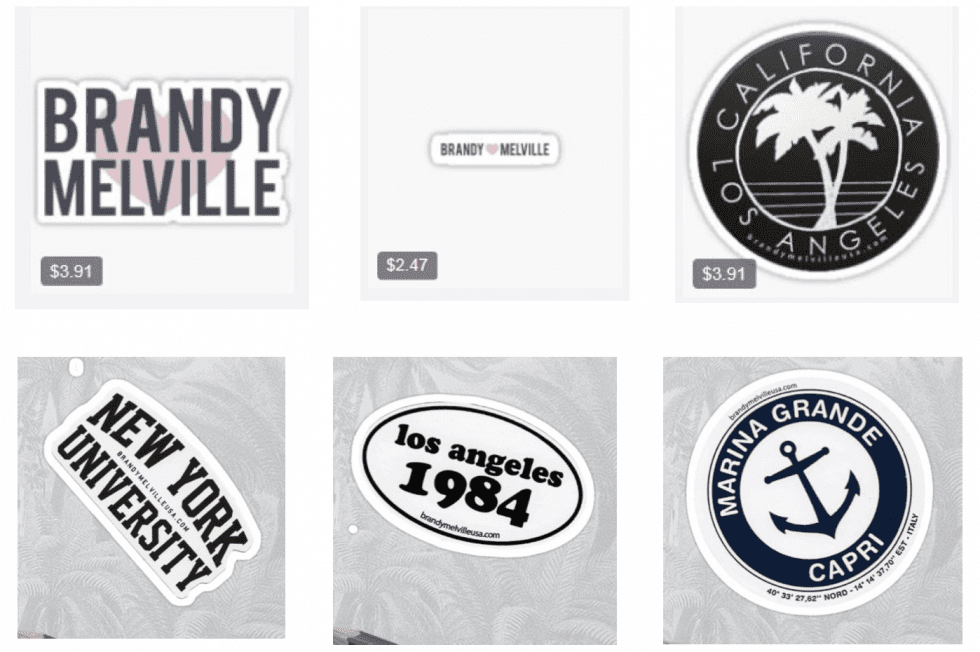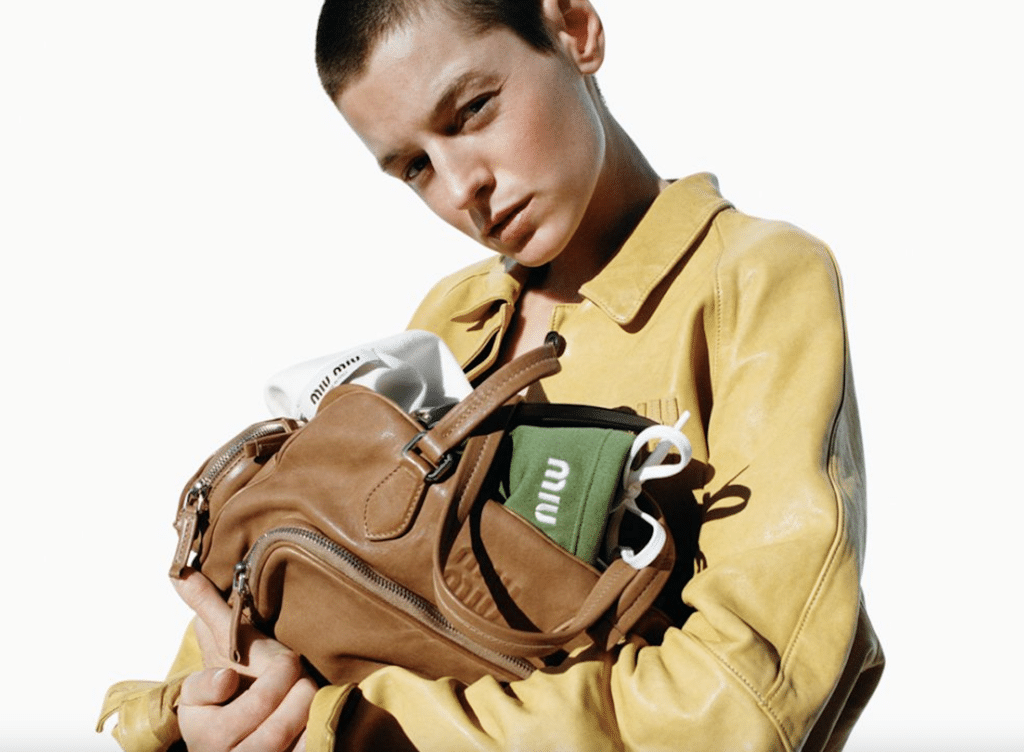Brandy Melville will not get the full $520,000 that a jury awarded it in the trademark infringement and counterfeiting lawsuit it waged against Melbourne-based marketplace Redbubble. Following a 3-day trial in June, after which a jury in California determined that print-on-demand e-commerce entity Redbubble should pay Brandy Melville $300,000 for its infringement of the Brandy Melville trademark that features the brand’s name positioned around a pale pink heart, $200,000 for infringing Brandy Melville’s “Los Angeles Lightning” mark, and $20,000 for its infringement of the other marks held by Brandy Melville, a California federal court has cut down the award to $220,000.
In a final judgment dated July 27, Judge Gary Klausner of the U.S. District Court for the Central District of California ordered that the jury award be reduced in light of his finding that Brandy Melville failed to make its case in regards to Redbubble’s offering up and sale of what Melville characterized as “counterfeit” versions of its Heart trademark.
The adjustment to the jury award followed from a Judgment as a Matter of Law that was issued on the same day, in which Judge Klausner first considered Melville’s claim (and the jury’s finding) that Redbubble engaged in contributory counterfeiting of the Brandy Melville Heart mark. Speaking to the nature of a counterfeiting claim in general, Judge Klausner cited the U.S. District Court for the Southern District of New York’s decision in the 2012 Gucci v. Guess case, asserting that “counterfeiting is the ‘hare core’ or ‘first degree’ of trademark infringement that seeks to trick the consumer into believing he or she is getting the genuine article, rather than a ‘colorable imitation.'” With this in mind, the judge referred to the Ninth Cicuit’s decision in Coach v. Asia Pac. Trading, and held that “courts have uniformly applied this provision to products that are stitch-for-stitch copies of those of another brand.”
Against that background, Judge Klauser held that Melville actually “failed to present evidence of products that bore a spurious Brandy Melville Heart mark and were offered for sale on Redbubble.com that were remotely similar to products that [Brandy Melville] offered for sale, let alone ‘stitch-for-stitch’ copies of [Melville’s] products.” As such, the court sided with Redbubble, finding that “the evidence presented at trial permits only one reasonable conclusion – [Melville] failed to establish that Redbubble is liable for contributory counterfeiting of the Brandy Melville Heart mark.”

Not an absolute win for Redbubble, in its judgment, the court revealed that it was not persuaded by Redbubble’s argument that Brandy Melville “failed to establish that Redbubble contributorily counterfeited [Melville’s] LA Lightning Mark.” This argument failed, according to the court, as “at trial, [Melville] put on evidence adequate to support the jury’s conclusion as to the LA Lightning mark.” Beyond that, the court held that additional arguments by Redbubble – namely, its claims that Melville “failed to sufficiently show common-law trademark rights; failed to introduce evidence sufficient to show at any alleged direct infringement are not aesthetically functional; failed to show likelihood of confusion of any type; and failed to show that Redbubble is subject to contributory liability generally” – similarly failed.
“The evidence put on at trial was adequate to support the jury’s conclusion as to all the points that [Redbubble] disputes,” Judge Klausner stated.
With the foregoing in mind, the court granted Redbubble’s motion for judgement as a matter of law with respect to the jury’s verdict for contributory counterfeiting of the Melville Heart mark, but denied the motion in all other respects. In the process, Judge Klauser also entered judgment for Redbubble on Melville’s claim for contributory counterfeiting of the Heart mark, which led to the reduction of jury verdict from $520,000 to $220,000.
Melville first filed suit against Redbubble in May 2019, arguing that the online marketplace has offered up and sold third-party designed “products that utilize Brandy Melville trademarks directly.” In its complaint, Melville claimed that while “Redbubble describes itself on its website as a ‘global online marketplace powered by artists,’ what [the company] does not mention is that it is also a global online marketplace powered by a substantial quantity of counterfeit goods.” And as Brandy Melville argued, at least some of those counterfeit goods bear its own branding, which could cause consumers to be confused as to the source or nature of the products.
The case is Y.Y.G.M. SA d.b.a. Brandy Melville v. Redbubble, Inc., 2:19-cv-04618 (C.D.Cal).











